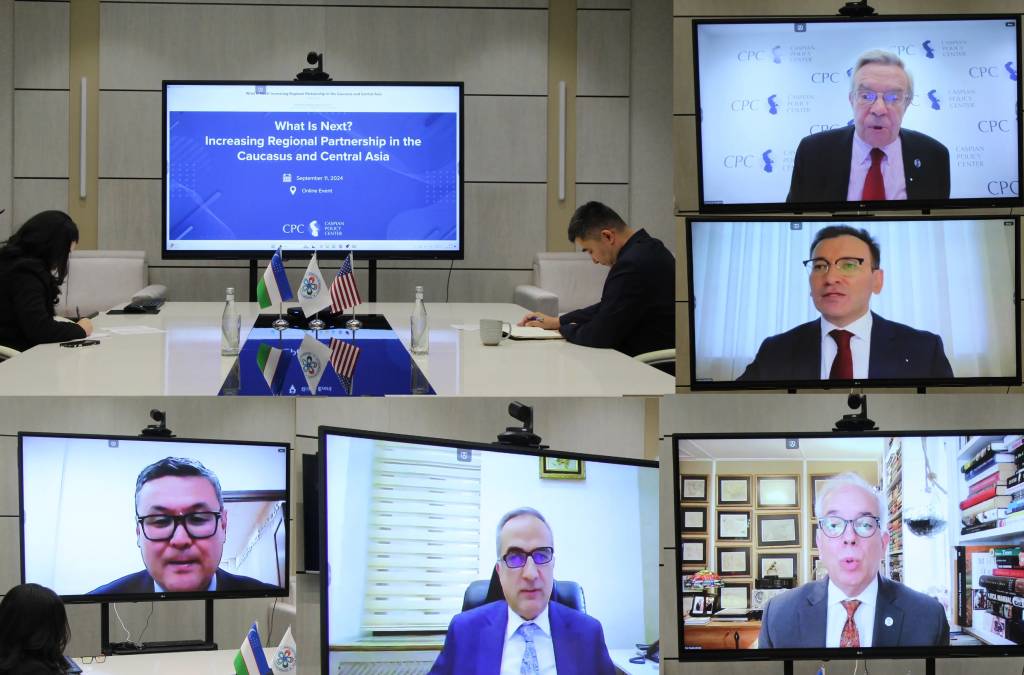
Washington hosted a webinar on “What Is Next? Increasing Regional Partnership in the Caucasus and Central Asia”.
The Caspian Policy Center, an American non-governmental think tank, organized the event. It specializes in conducting research on current issues of politics and security, energy, and transport communications in the region.
The participants noted significant progress in promoting regional cooperation in Central Asia and the successful development of Azerbaijan’s interaction with the region’s countries, especially in the context of President Ilham Aliyev’s participation in the consultative meetings of the heads of state of Central Asia in Dushanbe and Astana. The connection of the current positive dynamics of cooperation between the Central Asian countries with the proactive regional policy of the President of Uzbekistan Shavkat Mirziyoyev was emphasized.
In his speech, IICA Director Javlon Vakhabov noted the main results of the Astana Summit of the Heads of State of Central Asia and pointed out the need for further development of integration processes in the region. Special attention was paid to the prospects for expanding and deepening ties between the two countries in trade and investment, industrial cooperation, energy, and transport communications. The tasks of forming a Common Regional Market, restoring the United Energy System of Central Asia, and constructing the China – Kyrgyzstan – Uzbekistan railway were considered the main priorities.
The participants were also informed about the measures the Government of Uzbekistan took to expand trade-economic relations with Afghanistan. In particular, it was noted that with the opening of the Termez International Trade Center, designed to simplify cross-border trade and create convenience for entrepreneurs, Afghanistan’s trade relations with the countries of Central and South Asia, as well as the South Caucasus, will be significantly expanded, and significant joint projects in the region will be launched.
Regarding the prospects for developing relations with the Caspian region, experts noted the need to strengthen ties with Azerbaijan, which is an essential strategic route towards Europe. In addition, as indicated during the webinar, today, the interaction between Azerbaijan and Uzbekistan is dynamically expanding in such areas as renewable energy sources, transport and logistics, and industrial cooperation.
In conclusion, the speakers stressed that the current pace should not slow down, and the level of exchange and dialogue should not decrease. The experts expressed confidence that the continuing high dynamics in relations between Central Asia and the South Caucasus and regular contacts between the leaders of the countries of the two regions will give its results soon.
G. Khonnazarov, UzA








